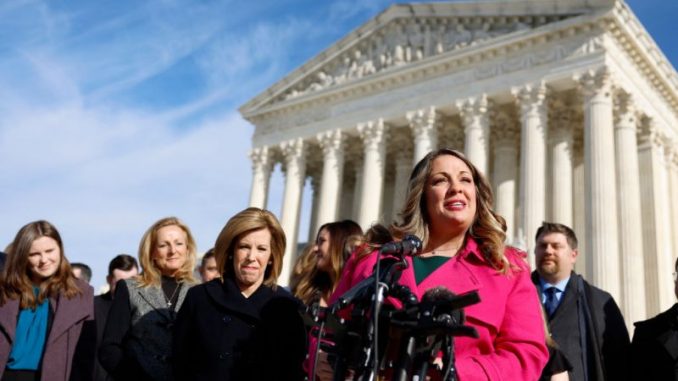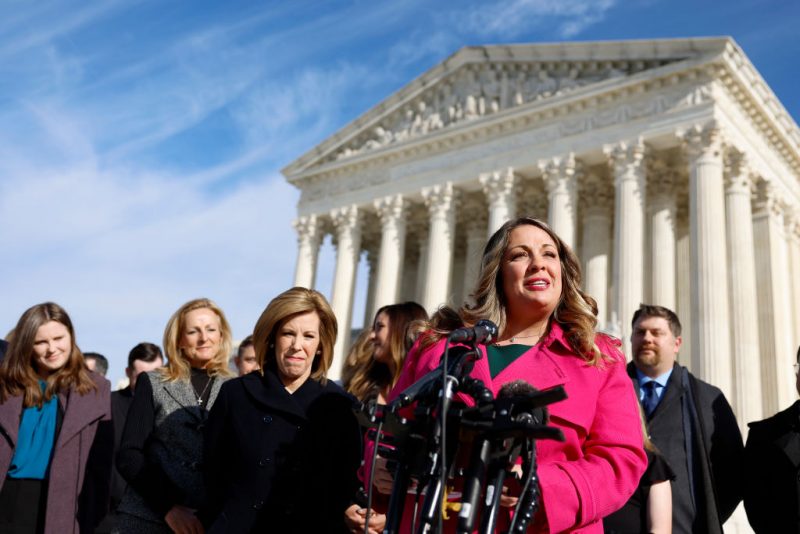

OAN Newsroom
UPDATED 10:40 AM PT – Tuesday, December 6, 2022
The Supreme Court is considering a case concerning religious freedom. The case is about a Christian web designer who is fighting for the right to publish work consistent with her religious beliefs.
Colorado graphic designer Lori Smith is at the center of a case now being considered by the Nation’s highest court. The owner of 303 Creative says that she cannot create a site that would celebrate views contrary to her Christian beliefs, including the view that a marriage should be between a man and a woman. Due to this, she decided to take the issue up with the federal court to ask for guidance.
Smith was told that under Colorado’s Anti-Discrimination Act, she isn’t allowed to deny services to same-sex couples despite her personal faith.
“I was really excited to step into the wedding industry and use my artistic talent,” she said. “Except there’s a Colorado law that prevents me from continuing my work and forces me to violate my beliefs and speak messages that I don’t agree with.”
The Supreme Court will decide whether a law like Colorado’s Anti-Discrimination Act violates an artist’s rights to free speech and freedom to exercise religion. Kristen Waggoner, the General Counsel at Alliance Defending Freedom, said that when Smith started her own business she did not surrender her first amendment rights.
“Lorie works with everyone, including those who identify as LGBT, and her faith influences all aspects of her life, including which messages she expresses as a graphic designer,” Waggoner stated. “She always decides which projects to design based on the message requested, and never based on the person requesting it.”
However, LGBTQ advocates believe that as a web designer, Smith decided to open her business to the public, thereby making goods and services available to any Colorado resident. They claim that it’s simply discrimination. However, Smith is hopeful the Supreme Court will side with her as it did in the 2018 case of the Colorado cake baker, Jack Phillips, who refused to bake a cake for a gay couple based on his religious beliefs.
In that 7-to-2 decision, the court ruled that the state commission showed hostility toward Phillips but did not rule on the broader issue of religious liberty.
Now, a fresh case has arrived before the Supreme Court, one that will test the intersection of Anti-Discrimination laws and constitutional rights.

